|
Yesterday, July 31, was the feast of St. Ignatius of Loyola, the Spanish spiritual master who gave us the Spiritual Exercises and was the founder of the Society of Jesus, also known as the Jesuits. As a young man, Ignatius served as a page for the treasurer of the kingdom of Castile and would later become an officer in the Spanish army. In 1521, Ignatius was struck in battle by a cannon ball which landed him in the hospital for a year. While in the hospital, Ignatius began to read about the life of Christ and the lives of the Saints, and he experienced a profound conversion. After years of prayer and further education, Ignatius took vows of poverty, chastity, and obedience and, along with other men including Peter Faber and Francis Xavier, formed the Society of Jesus in 1534. Ignatius was ordained in 1538 and the Society of Jesus was officially recognized by Pope Paul III in 1540. Additionally, Ignatius led the Society as its Father General until his death in 1556. Among the many great things that St. Ignatius gave the Church including the Society itself, which has produced many great Saints, and the Spiritual Exercises, Ignatius also gave us a prayer called the Suscipe. As short and simple of a prayer as the Suscipe is, it is equally as powerful. Essential to Ignatius’ spirituality is the fact that all human beings are creatures created by God and are in need of his great mercy and love and that everything we experience in our lives is a gift from God. The Suscipe is, in my estimation, the perfect product of this essential factor of Ignatius’ spirituality. Ignatius’ prayer goes like this: Take, Lord, and receive all my liberty, my memory, my understanding, and my entire will, All I have and call my own. You have given all to me. To you, Lord, I return it. Everything is yours; do with it what you will. Give me only your love and your grace, that is enough for me. As creatures, everything that we are and everything that we have is from God, our creator. Our liberty, memory, understanding, will, possessions, gifts, and talents — every good thing in our lives is a gift from God. The problem is that we, as humans, tend to think that we have done all the good things in our lives. While we certainly have to cooperate with God’s grace, all things are still reliant on his grace. Everything in this world will eventually pass away. Our good looks, quick wit, great intellect, ability to play an instrument, cook great food, or hit a golf ball 350 yards will pass away at some point in our lives. What do we do when we can no longer rely on our physical or mental ability? We can certainly shrivel up into a proverbial ball and pout that our life is over. But life in Christ leads us another direction, the direction of the Suscipe. This direction points us to grace and the necessity of grace in our lives. Even when all the other good things in our lives are gone, God’s grace will remain. God’s grace will sustain us when nothing else can and will be there when everything else fades away. Let’s have the courage to rely solely on God’s grace which is all that we need. St. Ignatius of Loyola, pray for us!
0 Comments
I recently came back from a summer vacation to England and Scotland. Whenever friends and family have asked about my favorite part of the trip, I always say the Scottish Highlands and English Lake District. The beauty of the tall mountains with peaks hidden in the clouds and covered in the brightest green foliage takes your breath away. Peering up at these magnificent stone crags with my head tilted back to face the sky, I couldn’t help but mutter a continuous, “Wow!” The first thought that entered my head was the lyric from the song “Shoulders” by the Christian band For King and Country: I look up to the mountains / Does my strength come from the mountains? / No, my strength comes from God / Who made heaven, and earth, and the mountains. The entirety of my trip, I saw God in simple things – a sunny day without rain, swans and ducks swimming in ponds, the architecture of a beautiful church, sheep and cows grazing in fields, fellow tourists greeting me with a funny story and smile. It took a plane ride across the Atlantic for me to become refreshed and remember to purposefully think about God’s presence in all things, no matter how ordinary the moment may be. After my trip, I thought about several ways in which I can continue to find God in everyday life.
For more resources on Laudato Si', please click here. In my 2nd grade class, the students are preparing to celebrate First Eucharist. They are busy learning all they can about their Catholic faith, the parts of the Mass, prayers and responses, forgiveness and preparing their hearts, and most of all: about the Eucharist itself. They are beginning to understand the purpose behind the Mass and why we say certain responses and kneel or genuflect at particular times. My class was recently interviewed by a couple of 8th graders about expectations they have for receiving First Communion. Some responses were priceless, such as:
“I’m nervous to forget to say, AMEN” and “I’m afraid to drop the host.” There were more practical answers such as: “I am excited to eat in church” and “I’m nervous to have 5,000 eyes on me!” My students are still learning, and during this time of preparation, I want to be sure they understand how they can reach intimacy with Christ in the Eucharist. With the Easter Triduum beginning on Thursday at the Last Supper, there is no better time than now to focus on the Eucharist. In both the Gospel of Luke and the Gospel of Matthew, we learn about the Last Supper Jesus had with his disciples. Luke 22:19 says, “And he took bread, gave thanks and broke it, and gave it to them, saying, ‘This is my body given for you; do this in remembrance of me.’” In Matthew 26:27-29, the Lord says something similar when he blesses the cup saying, “...and when he had given thanks, he gave it to them, saying, ‘Drink from it, all of you. This is my blood of the covenant, which is poured out for many for the forgiveness of sins.” We learn and believe that in this highest moment of Mass, in transubstantiation, the bread and wine transform into the Body and Blood of Christ. As I teach my students about the Eucharist, this consecration is the pinnacle moment that they must learn about and understand.The consecration in the context of the Last Supper is something we can all look forward to on Thursday. As Lent draws to a close and the Triduum begins, how prepared are we? My class’s preparation includes the preparation of their hearts through reconciliation. We go to confession as a class at the beginning of Lent, relieving ourselves of the pain and sins we have weighing us down. As we draw nearer to Easter, it is through this penance that we can see God more clearly, grow in intimacy with him, and be ready to receive Christ in the Eucharist. I invite you to consider going to confession before Easter. Although my 2nd graders will continue to learn about their faith and the Eucharist throughout their whole lives, my hope is to prepare them well-enough to make their First Communion as meaningful as possible. Part of this preparation is encouraging personal prayer for these youngsters. As a class, we are beginning to use more and more prayers for specific times in the day. We pray in gratitude or practice intercession. Loyola Press offers an Ignatian Examen for reflection each day that has a variety of topics and purposes. They are all calming and peaceful, with background music and an ending prayer. The Hail Mary, the Our Father, or the Glory Be help us learn more about how Jesus taught us to pray and other traditional Catholic prayers to know by heart. We also have personal prayer, taking quiet time to talk to God and ask him for help or to give strength to someone in pain. Finally, we will be learning a Communion prayer as we get closer to April and May to prepare the class to receive Christ for the first time. My Communion Prayer Dear God, I know that You give me many gifts. The gift of Your Son, Jesus Christ in Holy Communion is the greatest of all. How can I ever thank You enough for this special gift? At Mass we are called to be like Jesus, by loving and serving one another in the world. As I become more like Him, please continue to help me. Show me the places and ways that I can bring Your love, kindness, and peace to others.... in my family, in my neighborhood, in my community, with my friends. (Moment of silent reflection) Amen. Teaching 2nd grade religion has taught me more about my faith than I ever thought was possible. Now, I urge you to use these last few days of Lent and the Triduum to use prayer and penance to grow in closeness to God through the Eucharist. Like one of my students said, “I can’t wait to get communion because then I’m totally part of Mass and I don’t have to just be blessed with my arms crossed.” Growing up, my family celebrated Thanksgiving in a traditional way. We would wake up around 8am, watch the “Macy’s Thanksgiving Day Parade,” Broadway musicals, and wait for the rest of the parade to stroll through New York City - from our television. In between the commercials, we would help each other cook and prepare the dinner (which was usually eaten around 1pm or 2pm). As we all grew older and moved away, my siblings and I started making our own memories with those we loved around us. Sometimes, we’ll be surrounded with more than ten people and other times it is just two of us. Sometimes, we have just enough to feed us and other times we have leftover for days. But no matter what, Thanksgiving for me is about “the food before us, the family beside us, and the love between us.”
When reminiscing on Thanksgiving, I also think immediately of the Psalms. To me, the Psalms help provide a great variety of prayers of thanksgiving for what God has done for His people. Sometimes, we forget that God is the one we need to thank. We get caught up in our own lives and think that we only need to be thankful for our gifts and talents. In my 2nd grade classroom, my students take a moment to pray a prayer of thanksgiving at the end of the day. Psalm 28:7 sums up my point: The LORD is my strength and my shield; my heart trusts in him, and I am helped. My heart leaps for joy and I will give thanks to him in song. The more we find moments to thank God for parts of our days and lives, the more we are aware of our own need to do good for others. Being a “person for others,” as promoted by Ignatian spirituality, means helping those around you wherever you are and in everything you do. This is how I try to give back, by being a person for others. People need our help and we can give that through sending prayers, providing food, finding shelter, understanding the plight, giving resources, sending love and so much more! Every year, my dad leaves Thanksgiving dinner to donate turkeys to local families and people who need their own Thanksgiving dinners. Doing unto others as you would want them to do to you is the way to live throughout the year. This way of looking at life encompasses more than a holiday. The following poem by Joanna Fuchs is about how each thing in our life can be a blessing for us - especially at Thanksgiving. Most of All Thanksgiving Day brings to mind the blessings in our lives that usually go unnoticed: a home that surrounds us with comfort and protection; delicious food, for pleasure in both eating and sharing; clothes to snuggle up in, books and good entertainment to expand our minds; and freedom to worship our God. Most of all we are thankful for our family and friends, those treasured people who make our lives extra special. You are part of that cherished group. On Thanksgiving, (and every day) we appreciate you. Happy Thanksgiving! The first time chant roused my senses occurred on a 5 day Ignatian Silent retreat. I remember being entranced by the music—the repetition, the words, the rhythm. We were allowed to sing only for Mass and during the Stations of the Cross. It was a small chant from the ecumenical Taizé community that mesmerized me as we walked in the candlelit night from station to station. I remember singing it to myself over our winter break and in the weeks after. What was this Taizé community? I researched Taizé online and, to my surprise, was bombarded with YouTube videos and hundreds of songs from the community located in the Burgundy region of France. I ordered two of their CDs online and soon listened to nothing else. I grew more and more in my love for anything monastic: silence, routine prayer, chant, the Divine Office. I began starting my days with silent prayer, going to daily Mass and listening to chant rather than my usual list of Top 40 Hits. The music had a way of easing my heart, elevating my soul, transporting me to a higher world. I remember telling my bewildered roommate once as I got ready for the day, “You just don’t hear music like this anymore. This brings you to contemplate something bigger than yourself!” I continued to intersperse monastic spirituality into my days throughout the rest of my college experience and thereafter. While in Paris the summer after graduation, I stopped into the Church of St. Gervais for evening vespers and got lost in the beauty of the chanting of the Monastic Fraternities of Jerusalem, an order which entered the old church in white robes that glimmered underneath the stained glass windows. From there, I spent a week at the Taizé community I had come to love. My spiritual quest continued that summer after I flew back to the United States and spent a month at a Benedictine monastery who chanted the Divine Office in Latin. The music became the breath and heartbeat of my prayer life, an easy medium through which I could converse with God. The chants enabled me to praise and thank God with phrases that frequently came straight from Scripture, giving me words often better than my own and breathing new life into Word of God. Gregorian chant takes its name from Pope St. Gregory the Great, whose feast we celebrate today. Though historians argue over his precise role in the history of chant, Gregory the Great has been named a Doctor of the Church—joining St. Augustine, St. Ambrose and St. Jerome. Gregory, who entered a Benedictine monastery in Rome and eventually became an abbot, was the first pope to be elected from a monastery. During his life, he founded 6 monasteries on his estate. Though Gregory’s association with Gregorian chant is disputed, his love of the monastic life cannot be. (American Catholic) I can’t help but connect with Gregory’s monastic background; and I understand his love of it. I spent much of my summer after graduation as a pilgrim or guest at several spiritual havens because my soul yearned to spend time with God amidst nature, the sacraments and routine prayer. The music and chant were the glue that held these beautiful pieces together during my journeys—adding an almost mystical quality to my prayer life. As a result, I learned what St. Paul meant when he wrote, “pray without ceasing.”(1 Thess. 5:17). The words of chant often stuck in my head, I learned how to sing, to pray, unceasingly without ever having to open my mouth. Chant has a way of ingraining itself into your very heartbeat. We can learn much from the monastic life, which has guided thousands of men and women like Pope Gregory the Great towards holiness. By incorporating silent prayer into our days, we are better able to dialogue with God. I invite you this week to start or end your day with 5 minutes of silence in the presence of the Trinity. Rather than asking God for anything, try instead to simply thank, praise or accompany Him. Below is a link to one of my favorite songs from the Taizé community. May it help you in your journey towards praying unceasingly.
As a recipient of 8 years of Jesuit education, I, like so many others, can testify to the impact that St. Ignatius has had on my life. I have often wondered what makes St. Ignatius so popular. What about his spirituality lead to the largest order of priests in the world? What about his life has drawn students to his education for centuries?
There is an old phrase, “where the rubber meets the road,” that is often used to describe a moment of truth, or a time when something very important happens. St. Ignatius’ magnum opus was The Spiritual Exercises, a text written to guide a reader along a spiritual retreat. In the early 1500s, lay people could not go on retreat. People had to work each day just to survive. Even though there was a spiritual thirst, the general population did not have a way to bring Christ into their lives in a meaningful way. St. Ignatius sought a way to bring Christ into the daily life of all people, not just priests and monks. Because of the Spiritual Exercises, lay people were given a method in which to allow Christ into their daily lives, allowing Him to help shoulder their daily burdens. Now, people could fully experience the truth Christ had to offer. For St. Ignatius, a better way to express the old phrase would be “where the shoulder meets the cross.” In modern times, with so many opinions and an overabundant access to information, many often find it difficult to discover relevance in their lives. In times when the Church is often considered to be “out dated” and “not relevant,” St. Ignatius gives us proof that Christ desires to find us no matter where we are in our lives. St. Ignatius also showed us that in order to be found, we must be disciples. We must answer the invitation Christ offers with His simple words “follow me” (Mark 2:14). The success of the spirituality of St. Ignatius today shows the desire for Christianity that is relevant to one’s own life. St. Ignatius gave everything up and allowed Jesus into his life completely. In so doing, he was able to share his struggles and joys with the Lord. In following the spirituality of St. Ignatius, Christians today can bring Christ into their lives in a meaningful way, and can find Christ “where their shoulders meet the cross.” Suscipe by St. Ignatius Take, Lord, and receive all my liberty, my memory, my understanding and my entire will - all that I have and call my own. You have given it all to me. To you, Lord, I return it. Everything is yours, do with it as you will. Give me only your love and your grace. That is enough for me. Thomas Coast is a theology teacher and Assistant Director of Christian Service Learning at Notre Dame Prep in Scottsdale, Arizona. He is a graduate of the Echo Program at the University of Notre Dame. I remember the first time I felt true repentance. It was not because I got caught making a bad decision; not because I simply felt guilty; not because I thought about what others might think of me—all of which might be gateways to repentance, but not sufficient in and of themselves. I remember the first time I felt true repentance out of love of Christ and sorrow for the rejection of His love through my sin.
I was in a small chapel in the hills of Los Gatos on a five-day Ignatian Silent Retreat. The assignment on this particular afternoon was to spend time praying over and reflecting on your past sin, on how you had rejected God’s love and, in so doing, on how you had contributed to His pain on the Cross. It was a heavy day. I took a deep breath in the chapel and started remembering and reflecting on past sinful decisions. Some, I knew blatantly. Others seemed inspired by the Holy Spirit. I had not even realized how past decisions might have affected other people more than myself, and I was illuminated in such a way that I saw how my sins spread out like a web contaminating the lives of others. Tears flowed unguarded from my eyes. How could I have done such things? I placed myself within the crucifixion narrative and saw that I had joined the Roman soldiers with their whips, their taunts, their hammers. I had pierced my Lord. I felt terrible—like the scum on the bottom of a lake in the darkness. And then I felt Him. I felt His gaze from the tabernacle. He beckoned me, inviting my eyes to meet His own. “I can’t look back at you, Lord,” my heart said. “I’m too broken, too ashamed, too unworthy.” I kept looking down at my lap, afraid to meet His gaze. But the feeling of being looked at persisted, gently. After a few moments, I could no longer bear it. Anything, even Christ’s condemnation, would be better than avoiding Him. I looked up. And I met Love. I felt Christ’s presence in the tabernacle and saw Him looking at me as a bridegroom looks at his bride on their wedding day: joy, peace and love filling his face, eyes brimming with pride and tears and awe. The gaze with which Christ looked at me turned my blemishes into radiance. I became a spotless bride because of the overflow of His love. I knew, in the midst of my sin and ugliness, perhaps the ugliest I had ever felt, that I was inherently and infinitely loved, that my dignity was in Him. And so the tears flowed evermore—tears of humility, peace and joy. I had been given yet another chance, which I used to further receive the Sacrament of Reconciliation. I assume the joy and freedom I felt after this experience and after going to Confession is how Mary Magdalene felt when she met the Christ and was freed from seven demons. We know with certainty that Mary Magdalene had been cured of seven demons, that she was a follower of Christ and that she was present at the crucifixion. We also know Mary Magdalene, like all of us, was a sinner. When Christ met her, she might have given up. She had been plagued by seven demons and thought that perhaps she would never be free. Christ offers her another alternative: freedom. As a result of our encounter with Christ's forgiveness--both by encountering His love and by being reconciled to Him--we can live in the joy of the Resurrection. For this reason, it is fitting that Mary Magdalene is cited as the first witness of the Resurrection. St. Augustine called her the Apostle to the Apostles. We find Mary Magdalene in John's Gospel weeping by the open tomb of Jesus three days after His burial, for she thinks His body has been stolen. When Christ meets her, she mistakes him for the gardener. “Mary!” Jesus exclaims to his forlorn disciple, calling her by name (John 20:16). “Kate!” He exclaimed to me in the chapel. He meets us in our despair, our sorrow. Only then can we join Mary Magdalene in looking at Christ, recognizing Him and meeting His gaze. I imagine she grasped her bridegroom’s feet, kissing them in thanksgiving and bowing before Him. We cannot stay there in gratitude. Christ called me to go out from the chapel and to go out after receiving the Sacrament of Reconciliation, as he did Mary Magdalene: “Do not hold on to me, because I have not yet ascended to the Father. But go to my brothers” (John 20:17). The repentant sinner becomes the Apostle to the Apostles. This can only be so after we have encountered the love of God. Today, I invite you to an examination of your own sin, of any time you have rejected God’s love. Do so in a sacred place: a chapel, a Church, a reverent place in your house. I invite you to this in order to surrender these moments over to Christ and to allow Him to transform them by His love. Allow Him today to gaze at His beautiful creation, which has become broken or tarnished by the Fall and by sin, and allow Him to meet you where you are at, to love you there. Only by knowing how infinitely you are loved will you be able to “go to [His] brothers,” to go out to all the world in love—radiant, joyful and renewed. Kate Flannery is the Social Media Coordinator for the Catholic Apostolate Center Like most high school students, I had a yearly summer reading list to complete before the start of the next school term. One summer, I was required to read “The Five People You Meet In Heaven” by Mitch Albom. Reading this book was a “light bulb” moment for me. One line from the book stuck with me: “There are five people you meet in heaven. Each of us was in your life for a reason. You may not have known the reason at the time, and that is what heaven is for.”
After reading that line, I knew there had been individuals placed in my life for reasons I came to realize after reflection, as well as for reasons yet to be revealed. This week, I continued my reading of “The Discernment of Spirits”, Saint Ignatius’ teaching further interpreted by Fr. Timothy M. Gallagher, O.M.V., and I was reminded again of how God places individuals in our lives for a reason. In Saint Ignatius’ rule No. 2 of the discernment of spirits, he explains how people seeking God find encouragement, strength, courage, consolation, inspiration, and ease so that they may go forward in doing good. To dissuade us from following the path toward God, the evil spirit gives us anxiety, saddens us, and places obstacles in our way so that we are disquieted with false reasons to fall away from doing God’s will. Temptation takes many forms. In people who don’t easily succumb to sin, the evil one’s tactic is a gnawing feeling that triggers anxiety and diminishes peace and delight in God’s service. We may also find ourselves sad without knowing why when it comes to prayer, the loss of love for others in God, or any other pursuit of God – it is not a sadness such as that of the loss of a loved one or occupation. Obstacles are placed in our way, questioning how we can continue a life of daily prayer, for example, and live a lonely life. And lastly, false reasons can begin to fill our thoughts. After a Lenten retreat this year, I felt rejuvenated in my faith, but then started to feel like I didn’t make the most of my retreat experience and how I failed in my time with the Lord. I was wrong and needed to see that it was temptation seeking to cloud my judgment and give me a false reason to not attend future retreats. In contrast to these negative feelings, we know when we are on God’s path when God quiets our hearts from anxiety and we feel encouraged or strengthened by a decision or experience. For example, I have a friend who also blogs for the Catholic Apostolate Center, and his Facebook postings of each new blog popped up on my newsfeed. I was encouraged by this friend and my family to find out if I could blog from a different state. I found out I could, and each time I have a blog due, my faith is re-energized as I’m excited to share a new piece of my faith with others. God also assists us through inspiration. After my college graduation last year, I told a friend how I was nervous to be in a town without the great friends I had made in the last four years. She invited me to attend a young Catholic adult group in my new town, and now I am good friends with these great individuals. They inspire me each time we talk, and they recommend books and prayers that helped them overcome similar difficulties. Lastly, God eases or takes away obstacles. During one Mass I attended in college, a guest priest shared his goals for the Parish Mission starting the next day. I had not been to a mission before, but the more he talked, the more I felt compelled to go. For the next 24 hours, the feeling never went away. I even completed my homework early for the first time that semester. On my way to church, I ran into an old friend going to the mission. She was hoping to find a friend so she wouldn’t be alone. We sat together and, afterward, talked all the way home. Timothy 2:21 says, “If anyone cleanses himself [from what is dishonorable], he will be a vessel for lofty use, dedicated, beneficial to the master of the house, ready for every good work.” It’s quite amazing to look back and see how far I’ve come on my own spiritual journey due to the individuals placed in my life by God, so that I may also do his work. Dana Edwards is a recent graduate of the University of Florida. She currently resides in Tallahassee, Florida where she works as a Digital Strategist, and volunteers as a lector and with communication outreach at her local parish, Good Shepherd Catholic Church. To read Dana’s first post about the Discernment of the Spirits, click here! In my community, I am a member of a young Catholic adult group where there are weekly women and men small groups. During one women’s small group we discussed discernment for everyday actions and decisions. One of the members mentioned Saint Ignatius’ book, The Discernment of Spirits, as interpreted by Timothy M. Gallagher, O.M.V. and how the book helps her differentiate between God’s plan for her and her own wishes and temptations in everyday life. I hadn’t heard of this book before and decided to read the “Ignatian Guide for Everyday Living.”
While recuperating from a leg wound from the battle against the French in Pamplona, Ignatius asked for reading materials, of which he was given religious texts. Gallagher states, “While Ignatius ceases reflecting on the worldly project he finds himself ‘dry and discontented.’ Yet after he has considered the project of imitating the saints, the delight remains. He continues enduringly to be “content and happy.” Ignatius begins to become aware of the differences between bad spirits and the spirit of God. Ignatius then follows the process of becoming aware, understanding and taking action in order to discern what he must do. Becoming aware means taking notice of what is happening in our inner spiritual thoughts. Gallagher is completely right when he says that, “the goods of the senses are more visible, more tangible, and more readily apparent to us than those of the mind and of the spiritual order… it is no easy task to untangle and identify the innumerable threads in the tapestry of our daily affective and reflective life.” Henry David Thoreau described how fast-paced we live our lives when he said in Walden, “It lives too fast.” The discernment of spirits requires us to focus on spiritual awareness, and not psychological or moral awareness. As our world becomes increasingly filled with technology and having the need to fill every moment with activity, we can easily lose quiet and reflection time required of us to discern what God is calling us to do. Understanding is the reflection we take on the stirrings we have now noticed that allows us to see what is of God and what is not. In Ignatius’ experience, he notices the differences between the thoughts that leave him happy and those that leave him dry. He reflects upon these and eventually comes to recognize why a thought is of God and the other not. As for our own lives, Gallagher says to ponder if these thoughts affect our lives of faith, hope and love and if they allow us to follow God’s will. If so, than these are of God. Taking action refers to accepting to live according to what we’ve noticed is of God and rejecting what is not of God. As if the first two steps of becoming aware and understanding God’s call to us aren’t difficult enough, rejecting or accepting a spiritual action requires us to make a decision in following God’s call. In Ignatius’ case, he accepts God’s project: he travels to Manresa to begin a life in imitation of the saints, and makes a pilgrimage to Jerusalem. There are a total of 14 rules Saint Ignatius describes in his text. Ignatius indicates that these rules are for the person who strives to overcome sin and who is simultaneously growing in the service of the Lord – a dedicated and progressing Christian. As I continue on the journey of reading and reflecting on the discernment of spirits, I will happily share what I’m learning. Next up – a deeper dive into understanding the 14 rules! Dana Edwards is a recent graduate of the University of Florida. She currently resides in Tallahassee, Florida where she works as a Digital Strategist, and volunteers as a lector and with communication outreach at her local parish, Good Shepherd Catholic Church. |
Details
Archives
July 2024
Categories
All
|
About |
Media |
© COPYRIGHT 2024 | ALL RIGHTS RESERVED


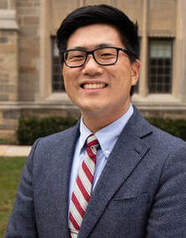


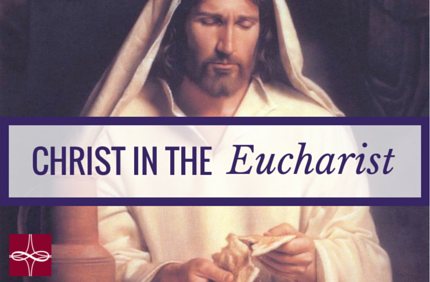



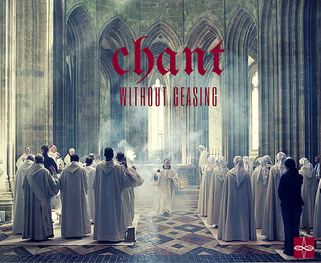

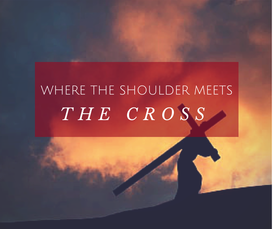

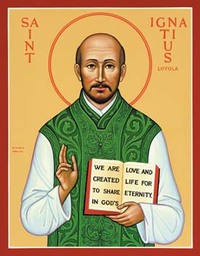
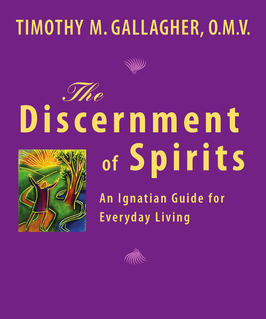
 RSS Feed
RSS Feed